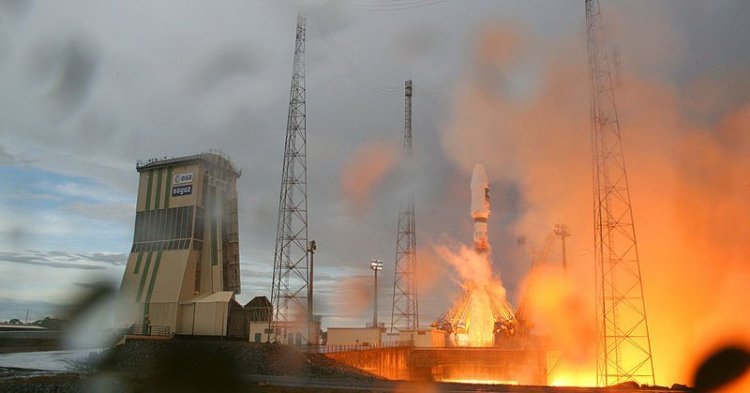The first two functional satellites of Galileo, the European global positioning system, are scheduled for launch in June. The take-off from Kourou Space Centre will mark the end of years of delays during which the programme faced more political than technical obstacles.
It took until spring 2003 for the European Union and the European Space Agency to reach an agreement on the implementation of the Galileo programme. Their aims were threefold: developing an independent global positioning system, setting up a constellation for mainly civilian use and establishing a back-up in case the United States decided to restrict access to GPS for any reason. Fearing the new system could be used by terrorists, the US strongly protested, especially after 9/11, but the Member States of the European Union insisted on the need to have a global positioning system that did not depend on American goodwill.
The technical aspects of Galileo made good progress from 2005, but the political and economic aspects discussions have been a bumpy ride. In 2006, the European Commission was forced to “nationalise” the project due to the collapse of public-private cooperation and funds originally earmarked for other purposes had to be diverted to plug the Galileo gap. The number of satellites that form the constellation was cut and the participating states were asked to increase their contributions. All this has provided an opening for critics who say the programme is too expensive or that it would be better to simply use the American GPS. After all, critics who want to rationalise the Galileo programme are right. However, those who call for it to be abandoned are dead wrong.
NATO has been, is and will continue to be a cornerstone of European defence policies. The EU’s security ties with the US are worth keeping. Nevertheless, having an independent global positioning system is crucial. It is simply too important to be outsourced to a third party, no matter how close an ally.
The other poles of our multipolar world know that a power which depends on another one for its defence is not a credible power, which is why America’s GPS now shares the heavens with Russia’s GLONASS, China’s BeiDou and India’s IRNSS. All these countries have military partnerships with others, but that has not stopped them from realising the need to develop their own global positioning systems.
The Soyuz ST-B rocket used to fling the Galileo satellites into orbit illustrates perfectly the limits of military cooperation with third parties. The Soyuz is not an ESA rocket, but a Russian launch vehicle whose venerable history goes all the way back to the Soviet Union’s R-7 intercontinental ballistic missile. However, if Russia decided to stop selling us rockets for any reason, we would still have a plan B: using Ariane 5 to launch European satellites. It would not be an ideal situation, as the Ariane is overkill for most satellites and the launch programme would have to be reconfigured, but at least we would retain the capacity to put satellites into orbit.
In contrast, if Europe gave up on Galileo, we would have no back-up plan if the US decided to block the GPS signal. We mainly use GPS to look up addresses or find the best route from A to B, but it has far more important uses. If the US blocked the signal, the vast majority of flights would have to be cancelled for safety reasons in no time. Supply chains, whose lorries depend to a great extent on GPS to reach their destination quickly, would collapse. Computer servers that use GPS to measure the passage of time accurately would start to fail, sowing chaos both within and without Europe.
The EU has quite a close defence partnership with the US. Nevertheless, it would be extremely naive to think our allies on the other side of the pond will back us anytime and anywhere. A clear example would be the Suez Crisis, in which America brought to bear enormous diplomatic and financial pressure on France and the United Kingdom, forcing the withdrawal of their troops from Egypt and sounding the death knell for their dreams of Empire. For better or for worse, this episode exposed for all to see that Europe cannot take America’s unconditional support for granted.
The bottom line is Europe cannot and should not outsource something as crucial as a satellite navigation system, not even to its closest allies. Almost 25 years after the end of the Cold War, the European Union will only come of age when it proves capable of coming out from under Uncle Sam’s wings. And, on the long and difficult road to military self-sufficiency, the Galileo programme is of capital importance to make sure Europe does not lose its bearings.


Follow the comments: |
|
